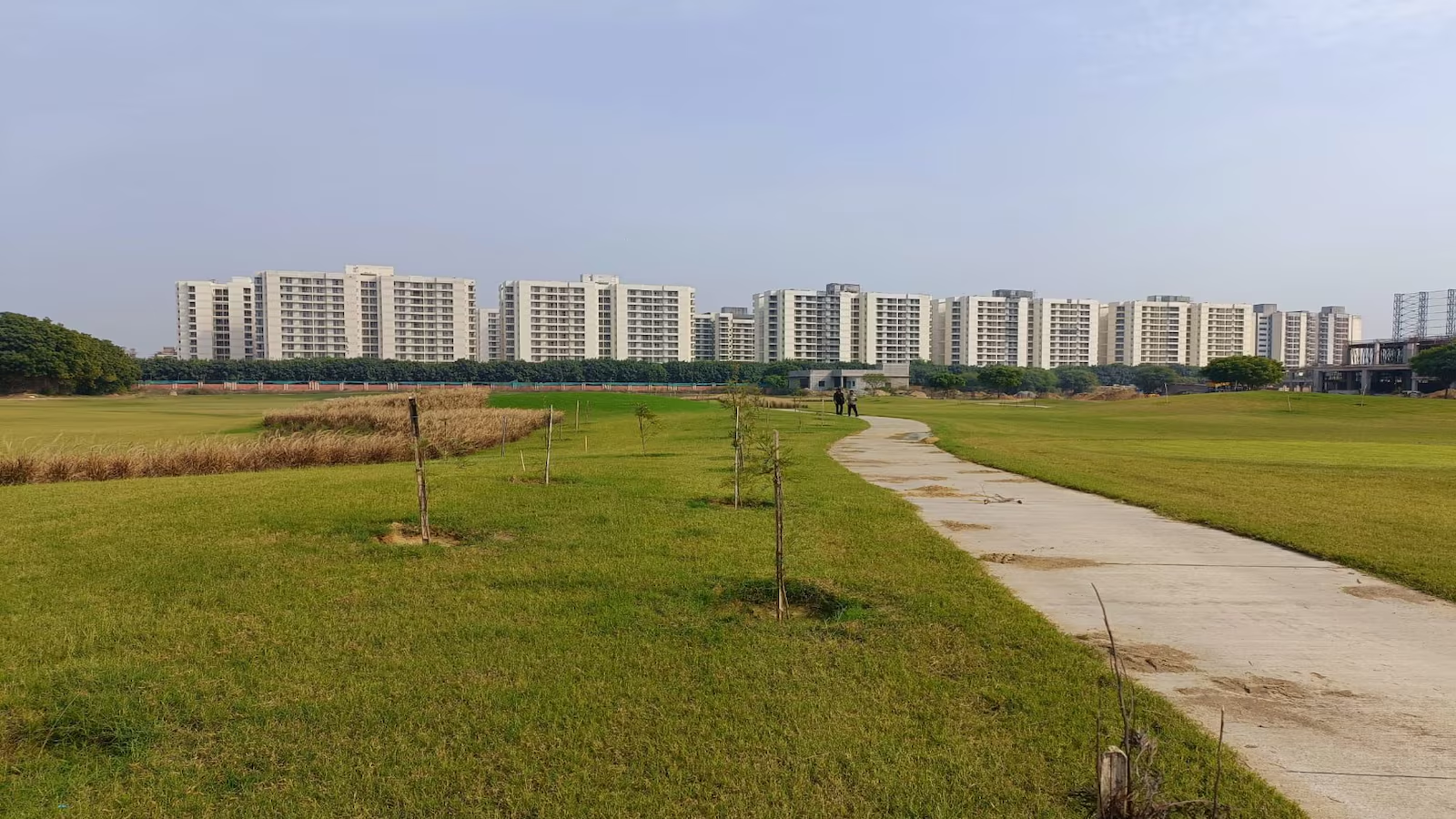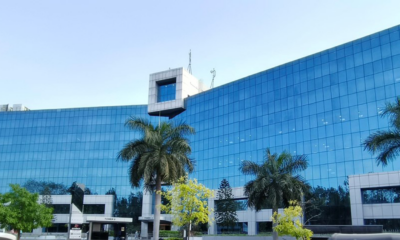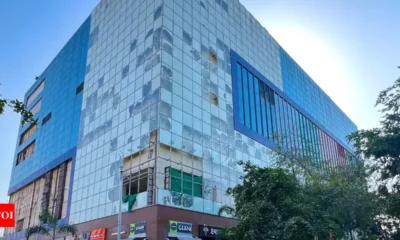News
With 50 bps hike, repo rate at pre-Covid level, home loan set to move northwards
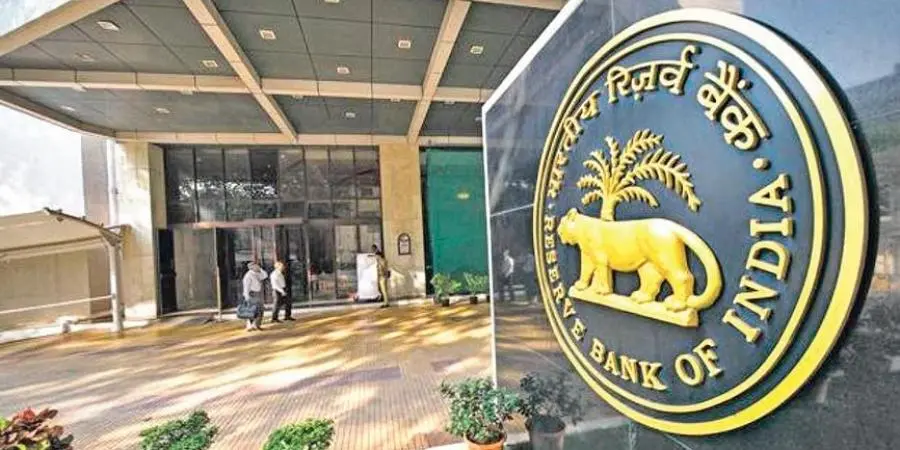

August 5, 2022: The Reserve Bank of India on Friday raised the key lending rate, the repo rate, by 50 basis points (bps). With this hike, the repo rate now stands at 5.4 per cent. Repo is the rate at which the central bank lends short-term funds to banks.
RBI left the CRR (Cash Reserve Ratio) untouched. CRR is the deposit that banks are mandated to maintain by the RBI as reserves.
The apex bank said that the hike is to promote growth of global trade and to support increasing global interest in the rupee.
Here is how real estate bigwigs reacted to the rate hike –


Anuj Puri, Chairman – ANAROCK Group
“A rate hike was expected, but the expectation was for a maximum of 35 bps. The hike by 50 bps is definitely on the higher side, and home loan lending rates will now edge further into the red zone. This whammy comes along with the inflationary trends of primary raw materials, including cement, steel, labour, etc., that have recently led to a rise in property prices. Together, these factors – rising home loan rates and construction costs – will impact residential sales that did reasonably well in the first half of 2022”.


Anshuman Magazine, Chairman & CEO – India, South-East Asia, Middle East & Africa, CBRE
Given the inflationary pressures present both domestically and globally, the RBI’s decision to increase the repo rate for the third consecutive time by 50 basis points to 5.40 percent came as no surprise. This may impact the cost of capital, however an immediate impact on housing demand is not certain. There has been an increase in appetite for home ownership post the pandemic, and with the upcoming festive season, it might generally withstand the marginal changes in loan rates.


Manoj Gaur President CREDAI NCR
The present repo rate hike of 50 bps by RBI is on expected lines. With this increase the repo rate completes a full circle and is back at the pre-pandemic levels. I don’t think it will have much impact on the consumer sentiments which remains buoyant at present. Housing as well as retail sectors will continue to thrive as the actual increase in home loan interest rates by the banks will be marginal at the best.


Shrey Aeren, Managing Director & Country Head of Berkshire Hathaway HomeServices Orenda India
The increased cost of borrowing would also make the construction of housing projects costlier for the developers, ultimately putting the price pressure on the end users. Having said that, it seems to be a natural move from the govt. to control the inflation


Nayan Raheja, Raheja Developers
The robust customers’ demands and growing income stability have kept the real estate markets in a fairly advantageous position. Prices of residential markets are also not high, and the pressure of input costs has also not been transferred to buyers this time. In a nutshell, the real estate markets have overgrown from the effects of the pandemic. The RBI’s decision to raise the repo rate will help the sector to ward off the deep ends of inflationary challenges and come out stronger.
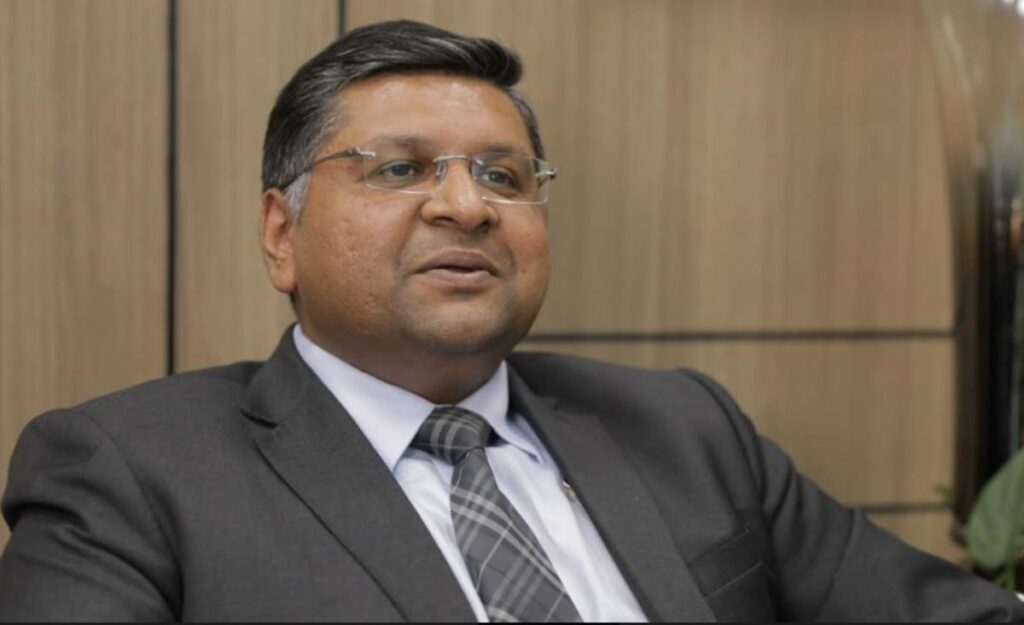

Ankit Kansal, MD, 360 Realtors
Across the globe, we have seen central banks increasing repo rates and the recent hike by the RBI is an extension of a larger global phenomenon. Meanwhile, what is interesting is the overall healthy underlying economic sentiments. Post-pandemic, the Indian economy is poised to grow fast in the coming quarters and this is infusing positive sentiments in the Indian real estate industry as well. In Q1 FY 23, FDIs have improved by 17% compared to the same period last year. The position of the rupee has strengthened and a correction in inflation is visible. The government has also introduced provisions for NRIs to pay their bills and utilities through Bharat Bill Payment System from abroad itself, which is a good step for the housing sector.
Dushyant Singh, Director Orion 132 , Noida
There was a general prescience among the market knowers that the repo rate would see an imminent rise, and much on the line of expectation, the repo rate has been increased by 50 basis points. It is a practically understandable decision to nosedive the inflation rates. The real estate sector is a part of the Indian economy, and a step to bring the economy into a comfortable zone free from the burdens of inflation will be beneficial for the sector as well. Though the property markets might face a jolt in the beginning, overall, the real estate sector will have a smooth run despite the hikes.


Uddhav Poddar, MD, Bhumika Group
RBI has taken a measured approach rather instead of taking any extreme measures to curb the inflation. While this would have an impact on the sale of properties as the potential buyer would rethink or postpone their decisions to buy a home or any other property. At the same time this would help tame inflation and ultimately benefit the developers as it would help in reduction of input costs.


Amit Modi, President of CREDAI Western UP
RBI’s increase in Repo rates by 50 basis points has once again increased the interest rates on loans. This is certainly going to impact the efficiency of buyers, especially the middle-class section of society. After this hike, millions of homebuyers might be sidelined and alienated from the property markets. This will decrease the pace of sales of projects in the real estate market.


Ashwinder R Singh, CEO Residential, Bhartiya Urban
Home loan rates will rise as the repo rate increases another 40 basis points. The weak rupee and rising inflation have sparked this, which would impact property demand, particularly in the 40-75 lac segment. The cushion is that salaries and general household income have been on the rise, and developers have not passed on the entire increase in input prices to consumers. However, second and upgrade home purchasers may exercise caution, and this may lead to an increase in unsold inventory levels with maximum impact on the under-construction property.


Deepak Kapoor, Director, Gulshan Group
I hope that the present increase of 50 bps in repo rate by RBI have the intended result of taming the inflation. Even though the government has been making efforts to rein in inflationary pressures on input costs it is still not in the comfort zones. As a real estate developer operating both in the residential and commercial segments, It is going to have a neutral effect on the overall scenario.


Prateek Mittal, Executive Director, Sushma Group
In an effort to curb inflation, RBI has revised the Repo rate and increased it by 50 basis points, from 4.90% to 5.40%. This will increase the interest rate of loans but is an excellent measure to tackle the input costs for developers. Talking about the real estate sector, it is not a major concern as residential and luxury projects are already experiencing massive demand due to the buyers’ economic efficiency. There would be a barely minimum impact on the sale of such projects. In all, it is a positive step by the organisation that would be beneficial in the long run.


Kushagr Ansal, Director, Ansal Housing
The repo rate hike of 50 BPS by RBI is yet another reformative action taken by the top institution to clamp down the inflation rates. Stabilising the macro and micro economic conditions is the main prerogative. It was an astutely measured decision to power up the economic prospects, and the praiseworthy thing is that they did not resort to any flip-flops. It might have a vague impact on the real estate sector but will surely not affect customer confidence.


Ansh Batra, Director, Buniyad Group
“The persistent inflationary straits have necessitated RBI to raise the repo rate by 50 basis points yet again. RBI has shown its proactiveness in building a strong net to tumble down the inflation rates and also cord off the market pressures. Although the real estate markets on a macro level will witness initial jerks and bumps as a result of increased home loan rates, it is far from hitting a roadblock owing to the renewed market interests.


LC Mittal, Director, Motia Group
The increase of 50 basis points by RBI is not a welcoming decision but would lead to positive outcomes after a short span of time. The minor increase in rates would hardly impact the buying capacity as the real estate sector is experiencing massive demand for projects by buyers from every genre, including plots or built-up projects from the residential theme and retail and office spaces from the commercial segment in the past few years.


Amit Jain, Director, Mahagun Group
The incremental rise in the repo rate has shown RBI’s commitment to decreasing the inflationary challenges which India is facing on a protracted basis. It would not have much bearing on the real estate sector. Obviously, there will be initial hiccups and shrinks in the market demand. But as there is a remarkable increase in property buying and the market is overflowing with new buyers, the initial challenges will be overcome very easily. Dealing and curbing down inflationary bottlenecks is a major priority right now, and RBI’s line of action is mainly driven by this.


Yash Miglani, MD, Migsun Group
After reining in the repo rate hike for quite some time to help the country tide over the difficult times due to the pandemic, the RBI has gradually started hiking it by a few basis points. The increase, in case the banks decide to pass it on to the consumers, will no doubt increase the cost of servicing home loans but its impact, given the projected outlook and the positive sentiments, on the real estate will be minimal.


Bharat Kumar, Director, Spaze Group
The increase of 50 basis points by RBI was quite expected in the market as per the inflation. However, the concern was regarding the increased loan interest rates, affecting the buyers of real estate. But the announcement has made it quite clear that there would be a minimum increase in rates, keeping the market unchanged as both commercial and residential projects are in high demand.


Dr Niranjan Hiranandani, National Vice Chairman, Naredco & MD- Hiranandani Group
“Industry reckons the RBI’s focus on sustainable economic growth with Real GDP forecast at 7.2% for FY23, while continuing its monetary intervention to tame global inflation headwinds by increasing repo rate by 50 bps. As the home loan borrowing is at the flexible rate, short term interest rate spike will certainly hurt the homebuyers’ sentiments, but it averages out the cost positively in the long term. Industry recommends the continuation of two thong approaches in the way of fiscal as well as monetary intervention to contain the consequential impact due to the global upheavals.”


Surendra Hiranandani, Chairman and Managing Director, House of Hiranandani
” The increase in repo rates will have an effect on interest rates as well as homebuyer attitude. This year has seen a steady increase in home sales, but the ongoing climb in mortgage rates may overwhelm a buyer. Despite the RBI’s strategic decision to raise repo rates in an effort to control inflation, the buyer of real estate seems to be less influenced by the most recent increases. Even with the rate hikes, recent quarter performance has been strong, reflecting the increased movement of home purchasers to purchase homes.”


Dr. Nitesh Kumar MD & CEO, Emami Realty
” Currently, RBI has adopted a more aggressive measure and delivered a 0.50 percent rate hike as it did in June. But it is also due to external factors like an upswing in global commodity prices which are more responsible for high Inflation than internal. We are expecting that this rate hike will not be passed by the banks to the end consumers in such a big way as they have already increased the rate by a significant margin this year. Demand in real estate especially residential is at an all-time high so we think it is not going to effect as much especially to reputed developers and corporates who have built trust over the years.”


Dhruv Agarwala, Group CEO, Housing.com, PropTiger.com & Makaan.com.
” The new rate, which is 5.40%, will ultimately impact the cost of borrowing for India’s homebuyers. However, it is also pertinent to note that past rate hikes and the consequent increase in home loan rates have so far not had any discernible negative impact on the burgeoning demand for homes. We believe that positive buyer sentiment coupled with the renewed interest of investors in residential real estate will cushion some of the adverse impacts of the rate hike.”


Ramesh Nair, CEO, India and Managing Director, Market Development, Asia, Colliers
“With this hike, the repo rate has now increased by 140 bps in the last 3 months, with the rate hovering above pre-pandemic levels. Domestic economic activities remain resilient despite the challenging global financial and geopolitical environment, leading to the withdrawal of the accommodative stance by the RBI. We do not see a significant impact on the high-end and luxury segments due to the higher home loan rates.”


Amit Goyal, CEO, India Sotheby’s International Realty
Given the need to tame inflation, the RBI decision to increase the repo rate by 50bps is on expected lines. With this third consecutive hike in the repo rate, we are now back to pre-pandemic levels, highest since August 2019. Home loan rates are now expected to settle around 8% per annum, which can put a short-term psychological dent on the demand for the mid and affordable housing segment, but we won’t see that continuing for long.


Pankaj Pal, Group Executive Director, AIPL
The RBI decision is on the expected lines considering the current inflationary scenario. The lending and deposit rates are likely to firm up. It may have a slight impact, but we don’t foresee a major impact on the demand side in the housing market. It is likely to remain robust as real estate is largely viewed by buyers as the best investment option considering the volatility in the equity market, gold as well as other investment avenues.


Saransh Trehan, Managing Director, Trehan Group
RBI has already raised interest rates a couple of times this year, and it had very little or rather no impact on the demand for real estate as the Indian economy is one of the best performing economies globally and the consumer sentiment is on a high. As a result, the demand for all kinds of properties continues to remain high and the scenario is unlikely to change in the near future.


V Swaminathan, Executive Chairman, Andromeda loans and Apnapaisa
This lending rate calibration by the RBI could signal a downward trend in borrowers looking for home loans, as both new & existing home loan EMIs are set to go up, ushering in a wait-and-watch attitude among new homebuyers.


Sanjay Sharma, Director, SKA Group
Even though the real estate sector would have liked the repo rate to remain unchanged but the ground level reality dictates otherwise. By hiking repo rate by 50 bps RBI has taken a conservative approach besides trying to do a fine balancing act. As far as the impact on the sector is concerned, I think that it will be minimal as the real estate future looks buoyant.


Avneesh Sood, Director of Eros Group basis RBI Monetary Policy today.
RBI’s decision to hike policy rates for the third consecutive time in the last two months marks the end of a record low-interest rate regime that has driven housing sales across the country since the pandemic. Also, the rising property prices, driven by inflationary trends in primary raw materials such as cement and steel, will dampen residential sales in the second half of 2022. We expect that the improved sentiment of homeowners, combined with renewed interest from investors in residential real estate, will mitigate the effects of this rate hike.
-



 News3 weeks ago
News3 weeks agoKW Delhi 6 Mall Onboards New Brands
-



 News4 weeks ago
News4 weeks agoManasum Senior Living Launches IKIGAI GOA, A Senior Living Community in North Goa, in collaboration with Prescon Homes
-



 News2 weeks ago
News2 weeks agoGodrej Properties Sells Rs 3k cr+ Homes of Godrej Zenith, Gurugram, within 3 days
-



 News4 weeks ago
News4 weeks agoBridging India Divide: Top 5 Tier- 2 Cities to Focus On
-



 News3 weeks ago
News3 weeks agoCommercial Realty Gets Tech Savvy: Fast Construction, Enhanced Convenience
-



 News4 weeks ago
News4 weeks agoMultipoint Connection – A Definite Boon
-



 News3 weeks ago
News3 weeks agoRBI’s Status Quo on Key Policy Rates to Help Maintain the Real Estate Growth Momentum, Say Industry Stalwarts
-



 News1 week ago
News1 week agoOlive Announces Dhruv Kalro as Co-Founder













